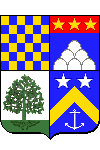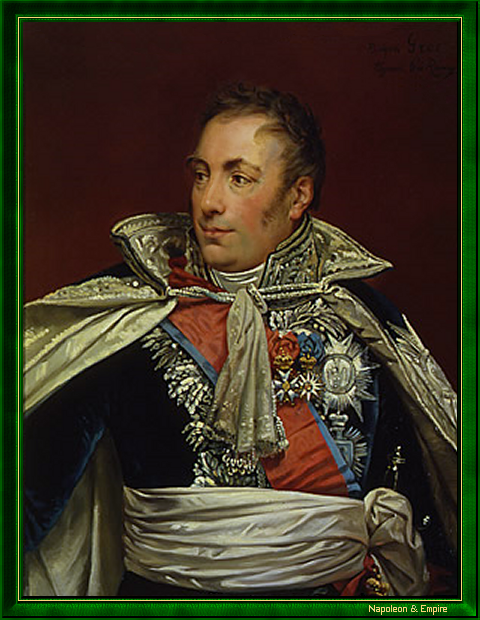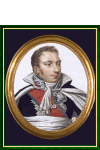Pierre-Antoine-Noël Bruno Daru
Count of the French Empire
Pronunciation:

Born in Montpellier on January 12, 1767, Daru was the son of a secretary to the Languedoc intendancy, and it was in this administration, where his father had brought him, that he began his career under the Ancien Régime.
During the Revolution, he continued his career at the Ministry of War, where he carried out important missions for the armies of Mainz, Helvetia and the Danube. Arrested during the Terror, released after the 9th Thermidor, he was reinstated in 1795 and made head of division in 1796, where he met Napoleon Bonaparte, who had come to work at the Ministry.
After having become First Consul, Bonaparte appointed him sub-inspector of the army of the Alps, sent him to take part in the peace negotiations following the battle of Marengo, and immediately afterwards appointed him Secretary General of the Ministry of War, where he did more than assist ouis-Alexandre Berthier, who relied entirely on him.
As Napoleon Bonaparte realized, Daru's list of posts grew longer and longer. In 1802, he joined the Tribunat. The following year, he organized the Boulogne camp. Shortly after the proclamation of the Empire in 1805, he became State Councillor and Intendant General of the Civil List. The Institut welcomed him in 1806, and in October of the same year he was appointed Intendant Général de la Grande Armée. In the meantime, he was entrusted with the execution of the Treaty of Presbourg, a task he carried out with commendable moderation, and then with the implementation of the agreement concluded with Prussia, in which he showed himself to be much more brutal and inexorable, the needs being more pressing.
The peace of Tilsitt only increased his workload, as the execution of the treaty was once again entrusted to him. 1809 brought him the title of Count, the general stewardship of the Emperor's household and, with Austria defeated, the provisional administration of this monarchy.
In 1811, Daru became Secretary of State and was entrusted with the custody of the Emperor's private treasury, a clear sign of the total confidence placed in him by Napoleon 1st.
It was also Daru who displayed prodigious activity and skill in the material organization of the French invasion of Russia, which he nevertheless disapproved of. He accompanied Napoleon 1st all the way to Moscow and back, until the Emperor left his troops. From December 5 to January 20, 1813, when he received orders to return to France, he was responsible for ensuring the survival of the remnants of the Grande Armée, in the absence of the intendant general, who was ill.
On his return, he was given the task of equipping a new army of 200,000 men and setting up supply bases in Germany. This he did. By the end of 1813, a third army in three years had to be ready for war. Daru set to work.
Minister of War Administration since November 1813, he accompanied empress Marie-Louise to Blois in 1814, then rallied to the Bourbons once they were back on the French throne.
Although appointed intendant general of the king's armies by Louis XVIII, he joined Napoleon I during the Hundred Days with the title of minister of state.
The second Restoration stripped him of all his positions, except for his seat in the Académie française. A peer in 1819, he defended liberal ideas in the Chamber, but devoted himself mainly to historical and literary works until his death in Paris on September 5, 1829.
Pierre Daru was buried in the Père Lachaise cemetery, division 21 .
"Pierre-Antoine-Noël Bruno, Count Daru", by Antoine-Jean Gros (Paris 1771 - Meudon 1835).

Napoleon 1st regarded Daru as a man of extreme probity, reliability and hard work. He described him as combining the work of an ox with the courage of a lion.
Pierre Daru was the cousin of writer Henri Beyle, known as Stendhal, who featured him in some of his works.
Daru's name is inscribed on the 20th column (east pillar) of the Arc de Triomphe de l'Etoile.
Address
121, Rue de Grenelle. Paris VIIème arrondissement
The Imperial Almanach of 1811 indicated that Count Dary was living at this address.Other portraits

"Pierre-Antoine-Noël Daru, Count of the Empire". Nineteenth century drawing.